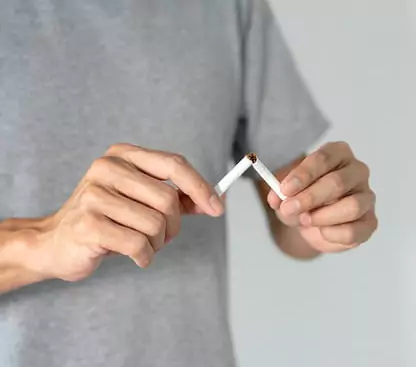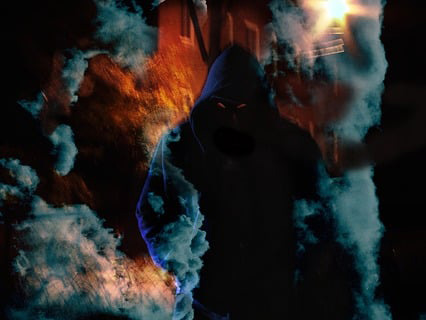
Cadaver Dogs: What Do They Do When They Find Human Remains?
May 20, 2023
Ways We Can Help Stop Veteran Suicide
June 8, 2023Phantom smells, sometimes referred to as phantosmia or olfactory hallucinations, refer to the experience in which a person encounters an unusual or unexplained odor that is not actually present. These experiences can be memorable and emotionally jarring due to their strong and persistent nature. Phantosmia may occur from a source, come from an injury, or be the result of an underlying health issue. If you are experiencing other medical conditions, it’s advised to contact a medical professional to see if phantosmia may be a symptom.
The causes are not completely understood. There is research that suggests phantom smells may be the result of overreactive cells in the brain or nasal cavity, or evidence of some other malfunction in the olfactory lobe of the brain. This could explain why most commonly experience these situations as a result of sinus infections, brain chemistry changes (e.g. head trauma or a stroke), benign or cancerous brain tumors, or different side effect medications.
The environment may be a factor and is oftentimes a result of poor air circulation. However, it can also be indicative of an improperly cleaned decomposition job. When this is the case, emotional or mental trauma can create a cycle of unexplained odors. Epilepsy or Multiple Sclerosis can place a burden on the nervous system, particularly the olfactory nerve that runs through the cerebellum and frontal lobe and can trigger phantosmia.
What do Phantom Odors Smell Like?
The description of the perceived smell varies from person to person. Some report pleasant odors, while others describe the smells as unpleasant. It can certainly vary depending on the person’s perception, surroundings, and/or condition.
In general, the smells can be described as:
- Pungent, rotting odor.
- A sharp chemical odor.
- A smoky or burning odor.
- Tobacco smoke.
- Moldy.
The smells may be strong, weak, or lingering, and some often describe them as intense. They can be caused by a number of different environmental or health issues.
Medical Explanations
Although we are still unraveling the science behind how the brain processes smell, we do know head or brain injuries can cause the phenomenon. Some cases are not so clear– how can a head injury in the back of the head affect one’s sense of smell when the part of the brain responsible for smell is near the forehead?
It could be that the brain has pathways we don’t fully understand yet, or, it could be the sign of an underlying medical problem as a result of the injury. In general, we tend to associate phantom smells with medical issues. This is because the phenomenon has been proven and publicized as a symptom of major medical concerns such as COVID-19.
Aside from COVID-19, phantosmia can be the result of any of the following medical concerns:

Quitting smoking can help reduce the likelihood of unexplained odors.
- Prescription medication.
- Impaired sense of taste.
- Sleep apnea.
- Brain or sinus tumors.
- Alzheimer’s disease or MS (Multiple Sclerosis).
- Parkinson’s Disease.
- Epilepsy.
- Nerve damage.
- Head or brain injuries.
If you suspect phantosmia as a result of any of these issues, it’s important to see a doctor or medical professional to discuss treatment. In this case, the source of the problem is not in the surroundings.
Environmental Explanations
The environment can cause unusual odors when there are lingering odors, allergens, or triggers in a person’s surroundings. This can range broadly from physical hazards to perceived hazards. Here are a few environmental sources:
- Lingering house odors, such as decomposition or pet urine smells.
- Dust, mold, and pollen.
- Chemicals (e.g. pesticides, pollutants, formaldehyde).
- Solvents such as toluene, isopropyl alcohol, paint thinners, or acetone.
- Carbon monoxide.
- Pesticides.
Thankfully, the presence of these types of smells doesn’t always indicate an issue with your health. More often than not they can be solved by identifying the source and treating the problem. In a biohazard situation such as a decomposition situation, this may require the intervention of a crew of professionals. It is never desirable to look for lingering decomposition smells and uncover leftover decomposition due to an improper cleanup. Crews like SCU exist to prevent families from experiencing the trauma and health risks of being exposed to these types of situations.
If you believe you are facing the remnants of an improper biohazard cleanup, it’s best you call the professionals to evaluate what’s going on. A decomposition cleanup company like Suicide Cleanup (SCU) can help identify and treat the problem. Call our 24/7, discrete emergency hotline for immediate assistance.


